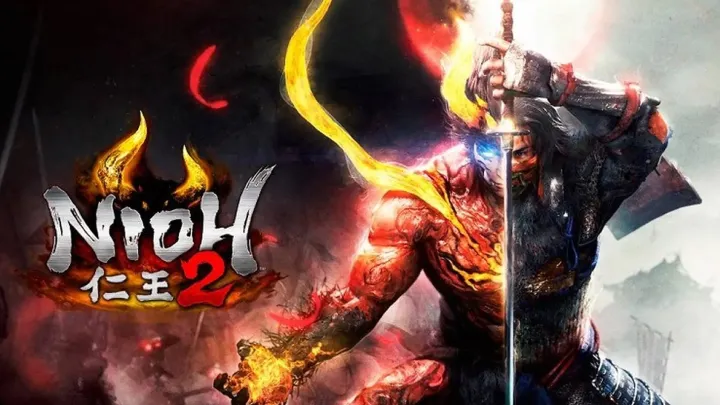
Hitman 3, the final entry in IO Interactive's acclaimed Hitman trilogy, presents players with a sophisticated blend of stealth mechanics, intricate level design, and a narrative that delves into themes of identity and morality. As players step into the shoes of Agent 47, they are not merely executing contracts; they are navigating a complex moral landscape that questions the nature of agency and the implications of their choices. This article explores the specific issue of identity and morality in Hitman 3, examining how the game challenges players to consider the ethical ramifications of their actions within a world built on deception and assassination.
The World of Hitman 3: A Canvas for Assassination
The game takes players across various meticulously crafted locations, each designed to provide a unique assassination experience. From the neon-lit streets of Chongqing to the luxurious mansions of Dubai, the environments are not just backdrops but integral parts of the narrative and gameplay.
Environment as Narrative
Each location in Hitman 3 tells a story that contributes to the overarching narrative of Agent 47's journey. The settings are rich with lore, filled with NPCs that have their own lives and motivations. This detail enhances immersion, making players feel the weight of their actions in a world that reacts to their decisions.
The Impact of Design on Decision-Making
The way levels are designed encourages players to explore multiple strategies for assassination. Players can choose to be stealthy, using disguises and environmental hazards, or they can opt for a more direct approach. This freedom of choice is central to the game’s identity, allowing players to engage with the moral implications of their methods.
The Agency of Choice: Empowerment and Consequences
At the core of Hitman 3 is the concept of agency. Players have the power to make choices that affect not only the outcome of their missions but also how they perceive their role as an assassin.
The Weight of Decision-Making
Every choice made during an assassination carries potential consequences. Will players eliminate a target quietly or create chaos? Each decision has implications for the environment and NPCs, which react dynamically to the player's actions. This mechanic emphasizes the idea that agency comes with responsibility.
Moral Dilemmas and Ethical Boundaries
The game forces players to confront moral dilemmas. For instance, players can choose to eliminate a target during a public event, risking collateral damage to innocent bystanders. Such choices challenge players to reflect on their own ethical boundaries and the nature of their actions within the game. This exploration of morality adds depth to the gameplay experience, inviting players to consider the ramifications of their choices.
Identity and Transformation: The Duality of Agent 47
Agent 47's identity is multifaceted, shaped by his past as a genetically engineered assassin and his experiences throughout the series. Hitman 3 delves into this complexity, exploring the duality of his character.
The Assassin's Persona
Agent 47 is often seen as a cold, detached assassin, a product of his upbringing in a secretive program. This persona serves as a mask that he wears while executing contracts. However, as players progress through the game, glimpses of vulnerability and introspection emerge. The narrative invites players to consider the man behind the suit, challenging the archetype of the emotionless killer.
The Influence of Relationships
Throughout Hitman 3, Agent 47 encounters various characters that influence his understanding of identity. His relationship with his handler, Diana Burnwood, is particularly significant. Diana serves as a moral compass and a reminder of the humanity that Agent 47 often suppresses. Their dynamic adds layers to his character, illustrating that identity is shaped not only by actions but also by relationships.
The Role of Technology: Surveillance and Control
In Hitman 3, technology plays a critical role in shaping the narrative and gameplay. The game explores the implications of surveillance, control, and the ethical considerations of using technology in the pursuit of assassination.
The Surveillance State
The environments in Hitman 3 are filled with surveillance technology, from cameras to drones. This omnipresence of monitoring devices creates a tense atmosphere, forcing players to consider how their actions may be observed and recorded. The reliance on technology raises questions about privacy and autonomy, prompting players to reflect on the implications of living in a surveillance state.
The Ethical Use of Technology
As players utilize technology to plan and execute assassinations, they must grapple with the ethical ramifications of their choices. The game encourages players to think critically about how technology can be harnessed for both good and ill. This duality adds depth to the narrative, illustrating that tools can be used to empower or control individuals.
The Final Contracts: Identity in Crisis
As the story progresses toward its climax, Agent 47 faces a series of final contracts that challenge his understanding of identity and morality. The stakes are raised, and the consequences of his choices become increasingly significant.
The Showdown with Providence
The final confrontation with the shadowy organization known as Providence forces Agent 47 to confront the very forces that have shaped his life. This confrontation serves as a culmination of his journey, forcing him to reckon with the implications of his actions and the choices he has made throughout the game.
The Emotional Weight of the Encounter
The emotional weight of this showdown underscores the themes of identity and agency. As Agent 47 battles the forces of Providence, he must confront not only external adversaries but also the internal conflicts that have defined his character. This moment encapsulates the essence of his journey, highlighting the importance of self-acceptance and the struggle for agency.
Embracing Identity and Change
The resolution of the conflict allows Agent 47 to embrace his identity in a new light. He emerges not only as a skilled assassin but also as a character who understands the complexities of his past and the potential for his future. This evolution emphasizes the theme that identity is multifaceted and ever-changing, shaped by experiences, choices, and the relationships forged along the way.
The Aftermath: Reflecting on Identity and Agency
Hitman 3 encourages players to reflect on Agent 47’s journey and the broader implications of identity and agency. The aftermath of the final contracts invites players to consider the impact of their choices on both the protagonist and the world around him.
The Legacy of Agent 47
Agent 47’s journey in Hitman 3 serves as a powerful narrative about self-discovery and the complexities of identity. His evolution from a detached assassin to a character who embraces his past illustrates the transformative power of experience and choice.
A Call for Reflection
The game invites players to consider their own journeys of self-discovery and the identities they forge. By engaging with Agent 47’s story, players are prompted to reflect on their values, choices, and the connections that shape their lives.
Community Reception: Engaging with Themes of Identity
The release of Hitman 3 has sparked discussions within the gaming community regarding its exploration of identity and agency. Players have shared their interpretations of the game’s themes, reflecting on the narratives that resonate with them.
Positive Feedback on Character Development
Many players have praised the game for its nuanced exploration of character development and moral dilemmas. Agent 47’s internal struggles resonate with individuals who have faced similar conflicts in their lives, making his journey relatable and impactful. The game’s ability to tackle complex themes within an engaging narrative has garnered significant acclaim.
Critiques and Calls for Depth
Conversely, some players have expressed a desire for even deeper explorations of identity and agency. While the game offers a rich narrative, there is an acknowledgment that the complexities of identity cannot be fully captured in a single story. This feedback emphasizes the need for ongoing conversations about identity in gaming and the importance of representation.
Conclusion: The Enduring Impact of Identity and Agency in Hitman 3
Hitman 3 presents a profound exploration of identity and agency through the journey of Agent 47. By navigating the complexities of selfhood, memory, relationships, and choice, Agent 47 emerges as a character who embodies resilience and growth. The game’s rich narrative invites players to reflect on their own identities and the journeys they undertake in search of self-understanding. As the gaming industry continues to evolve, the themes presented in Hitman 3 will undoubtedly resonate with future narratives, reinforcing the importance of exploring the intricate connections between identity, agency, and the fight for justice.

















